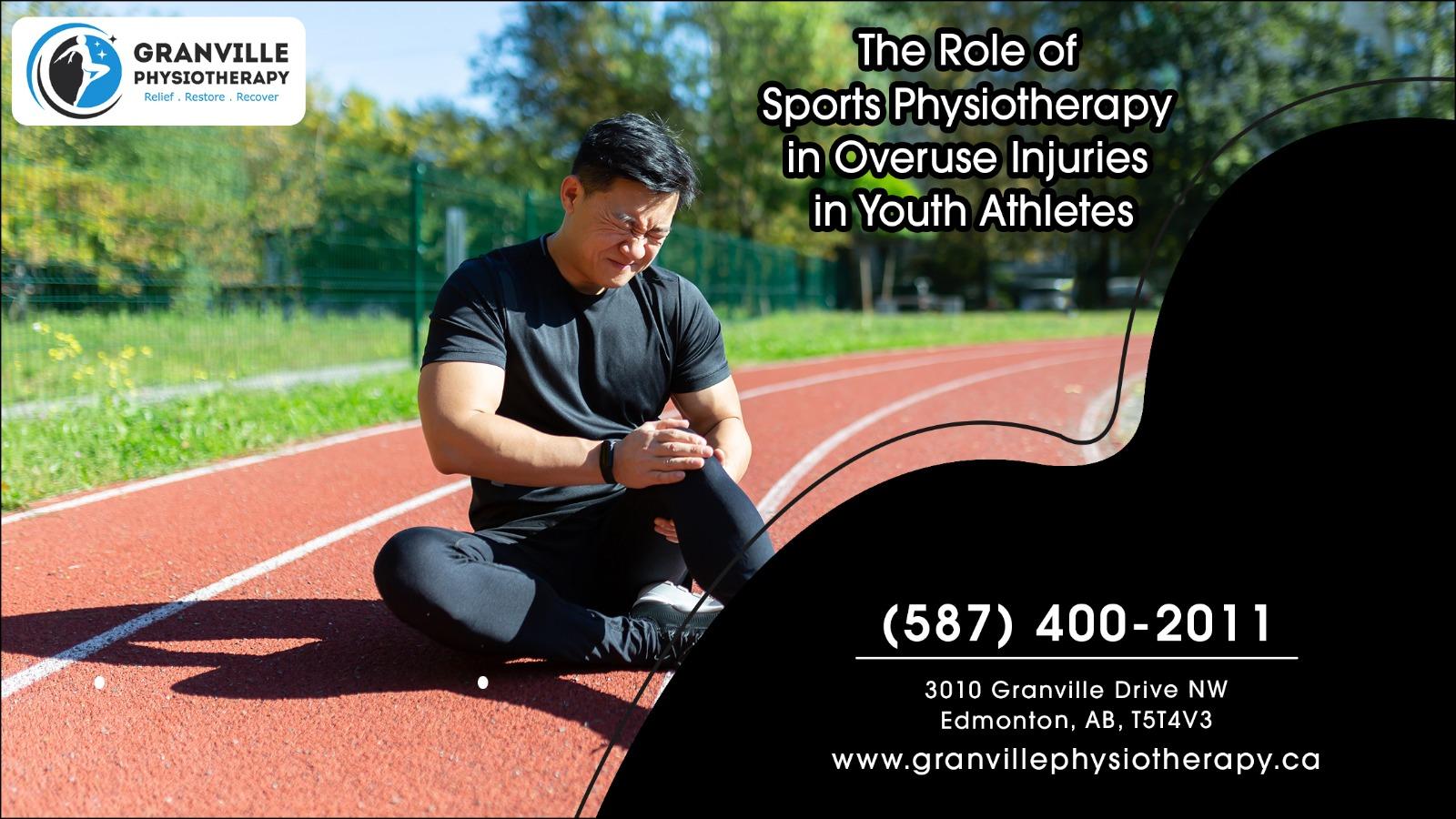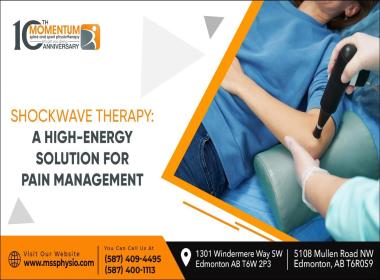In the realm of athletics, the age-old adage, "more is better," is not always applicable. Pushing beyond one's physical limits can lead to a condition known as Overtraining Syndrome (OTS). OTS is a multifaceted syndrome that arises from an imbalance between training and recovery. As it turns out, it's not merely about how hard or often one trains but how effectively one recovers. In the heart of Edmonton, sports physiotherapy clinics like Granville Physiotherapy Edmonton recognize the importance of balancing training with recovery, offering specialized services to help athletes manage and overcome OTS.
Understanding Overtraining Syndrome
Overtraining Syndrome (OTS), commonly referred to as "burnout," is a multifaceted condition that emerges when there is an imbalance between training and recovery — when the training intensity and/or volume exceeds the athlete's recovery capacity. While the dedication to rigorous training is commendable, it is a double-edged sword. The pressure to perform and consistently push one’s limits can sometimes overshadow the equally important need for rest and recovery.
Why does it happen?
The principle behind training in any sport is to apply stress to the body, allow it to recover, and then apply a bit more. This process, known as 'progressive overload,' helps athletes build strength, endurance, and skill. However, when the body is subjected to excessive stress without adequate recovery, it can lead to a cascade of physiological and psychological symptoms. OTS essentially arises from ignoring or misinterpreting the body's pleas for rest. The other causes include:
Inadequate Recovery: Poor sleep, suboptimal nutrition, stress, and dehydration hamper effective recovery, making athletes prone to OTS.
Monotonous Training: Repetitive, unvaried training can overwork specific muscle groups, accelerating burnout.
External Pressures: Pressures from coaches, peers, or personal expectations can push athletes beyond their limits.
Psychological Stressors: Personal issues or other life stressors can compound physical strain, exacerbating OTS symptoms.
Lack of Cross-Training: Focusing solely on one sport without diversifying exercises can heighten the risk of OTS.
Environmental Factors: Training in extreme conditions without proper acclimatization can fast-track the onset of OTS.
Ignoring Early Signs: Overlooking initial signs like minor aches or mood changes can push athletes deeper into OTS.
Signs and Symptoms of Overtraining Syndrome
Physical: Persistent fatigue, increased susceptibility to injuries, frequent illnesses, altered resting heart rate, and loss of appetite.
Mental: Mood disturbances, irritability, depression, loss of motivation, and concentration issues.
Performance: A decline in training performance, intolerance to training load, and prolonged recovery.
Role of Sports Physiotherapy in Addressing Overtraining Syndrome
Thorough Assessment: The first step in managing OTS is a detailed evaluation. Understanding the athlete's training regimen, nutrition, sleep patterns, and stress levels helps in pinpointing the root causes of Overtraining Syndrome.
Individualized Recovery Programs: Based on the assessment, physiotherapists devise a tailored recovery program. This might include modified training schedules, specific exercises to address weaknesses, and strategies to enhance recovery.
Soft Tissue Mobilization and Massage: Therapeutic massage techniques can alleviate muscle tightness and soreness, enhancing blood flow to muscles and accelerating the healing process.
Electrotherapy and Cryotherapy: Modalities like TENS, ultrasound, or cold packs can assist in pain relief, muscle relaxation, and inflammation reduction.
The Power of Athletic Therapy
While Sports Physiotherapy Edmonton plays a pivotal role, coupling it with athletic therapy offers a more comprehensive approach. Athletic therapy focuses on the prevention, immediate care, and rehabilitation of sports injuries. It involves manual techniques, bracing, taping, and even on-field emergency care.
Injury Prevention and Education: Athletes are educated about proper training techniques, the importance of warm-ups and cool-downs, and strategies to avoid OTS.
Immediate Care: Immediate injury assessment and care can drastically reduce recovery times and prevent minor injuries from becoming major ones.
Rehabilitation: Once OTS is identified, the rehabilitation process involves a structured plan to help the athlete regain strength, mobility, and endurance, setting them back on their path to peak performance.
Ensuring Correct Diagnosis
It's crucial not to jump to conclusions when faced with symptoms of OTS. Many of the following conditions, while bearing similar signs, have different underlying causes and treatments.
Chronic Fatigue Syndrome (CFS): While similar in terms of persistent fatigue, CFS doesn’t always result from excessive physical training.
Adrenal Fatigue: This is characterized by a decrease in the adrenal gland’s ability to produce sufficient levels of its hormones, notably cortisol, due to prolonged stress.
Iron-deficiency Anemia: Symptoms can mirror OTS, including fatigue, but result from low iron levels in the blood.
Mental Health Disorders: Disorders such as depression or anxiety can manifest with symptoms like fatigue, mood disturbances, and decreased motivation, similar to OTS.
A comprehensive evaluation, often facilitated by sports physiotherapists, can help in correctly diagnosing and addressing the root causes.
Effective Management of Overtraining Syndrome with Sports Physiotherapy
In the dynamic landscape of sports, the objective isn't merely about training harder but smarter. Recognizing the early signs of OTS and seeking expert care can make all the difference. Sports Physiotherapy Edmonton, especially at reputed centers like Granville Physiotherapy Edmonton, combined with Athletic Therapy Edmonton, provides a holistic solution, ensuring athletes train effectively, recover optimally, and perform at their best. After all, in the world of sports, longevity, and consistent performance often eclipse short-lived brilliance.
Also read about:
Workplace Injury Recovery A Comprehensive Guide to WCB Physiotherapy
Invisible Armor How PPF Safeguards Your Teslas Flawless Finish
Shockwave Therapy A High Energy Solution for Pain Management










